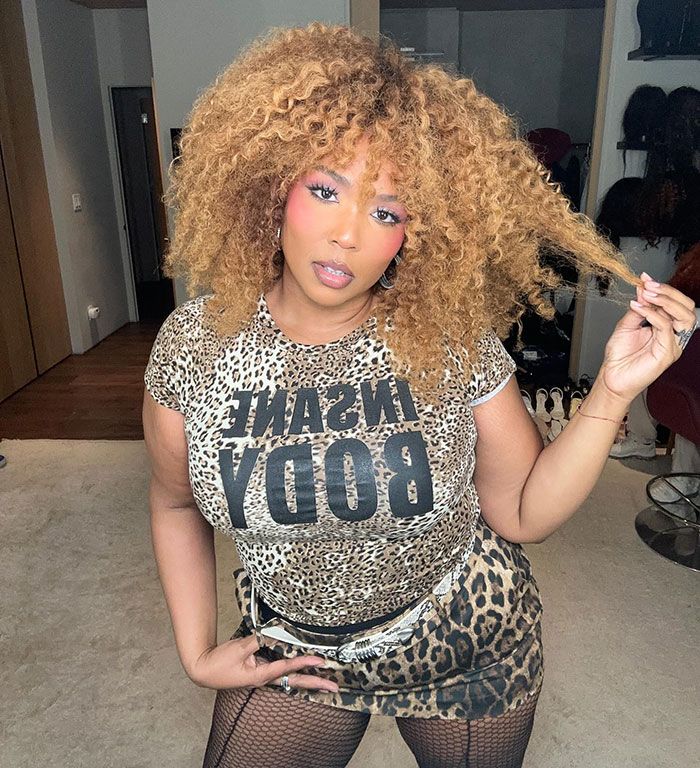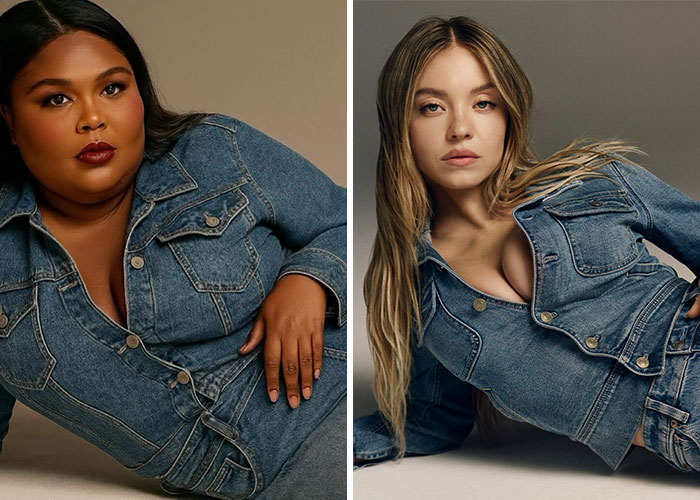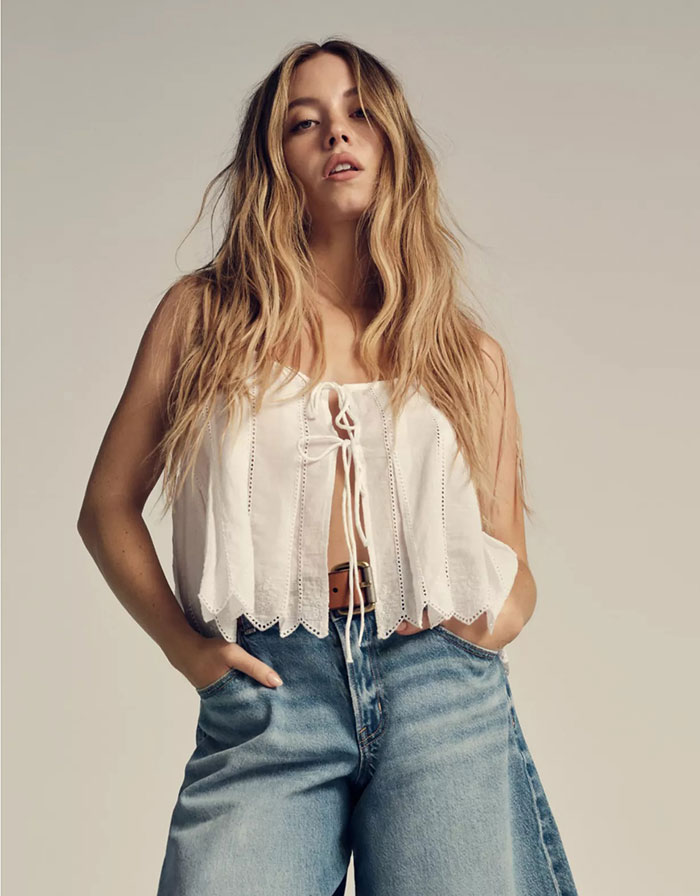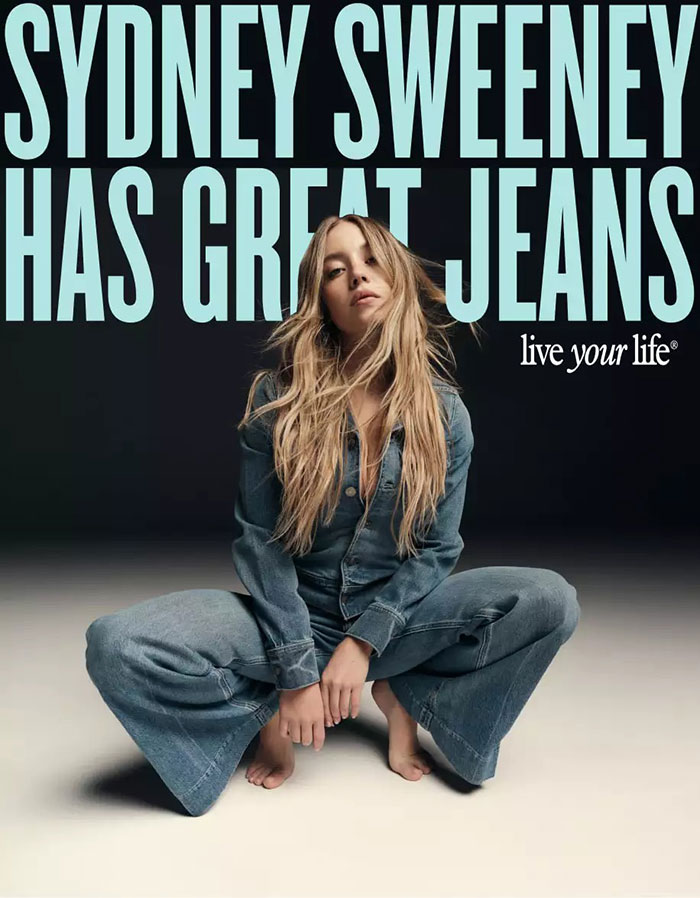In response to Sydney Sweeney’s recent American Eagle campaign, Lizzo has stirred up quite the conversation online with a sharp, satirical take on the controversial ads. The American Eagle campaign, which is reportedly the brand’s most expensive to date, featured the Euphoria star crediting her genetics for her looks. In one ad, Sweeney said, “Genes are passed down from parents to offspring, often determining traits like hair color, personality, and even eye color… my genes are blue.” While some fans found the campaign lighthearted, others accused it of promoting white-centric beauty ideals, with some even claiming it glorified whiteness and bordered on eugenics.

Lizzo quickly joined the conversation by posting a photoshopped image of herself in the same pose and outfit that Sweeney wore in one of the American Eagle ads. Her version included the text: “If the Democrats won the election,” subtly implying she’d be the face of the campaign in a different political climate. She captioned the post with, “My jeans are black,” clearly playing off Sweeney’s “My genes are blue” line. The parody sparked a flurry of responses across social media, with some praising Lizzo’s bold commentary and others debating the deeper implications of the campaign itself.
Not stopping there, Lizzo used the moment to shine a light on her own genetic pride. Her next Instagram post promoted a Paper magazine interview where she discussed her natural beauty and the importance of taking care of what you’re born with. “I love my natural face. I look at my mother’s face and I’m like, hell yeah,” she said. “I feel very blessed to have great genes and I wanna show it.” She emphasized embracing what God gave her, comparing her skin to a high-end bag that deserves proper care. “When you buy a nice bag, you don’t throw it around… one day the bag is going to get old and you’re going to say, ‘Oh no! This bag is dusty.’”
Lizzo shared that she began taking skincare seriously about three years ago. Before that, her routine was simple—just rose water and a bit of oil. But over time, she realized her good skin could be even better with consistent care. Her thoughtful, grounded perspective on beauty contrasted sharply with the tone of the American Eagle campaign, further fueling the online dialogue.

She wasn’t alone in poking fun at the ad. Doja Cat also got in on the joke, mimicking Sweeney’s dialogue in an exaggerated Southern accent, bringing an added layer of humor to the controversy. Meanwhile, late-night host Stephen Colbert weighed in with his usual brand of satire, calling the backlash an “overreaction” but joining in nonetheless. “Just like Sydney Sweeney, I also carry the gene for sexy commercial scratchy voice. I get it from my uncle on my mother’s side,” he quipped. He went on to mock the ad’s critics, comparing it—tongue firmly in cheek—to Nazi propaganda. “Although Hitler did briefly model for Mein Kampfort Fit Jeans,” he joked. “How do you say ‘badonk’ in German?”

Comedian Michael Pavano also threw his hat into the parody ring. Dressed in a blonde wig and purple denim, he delivered his own satirical take: “My jeans are blue – so they’re like, better than yours. They say people with blonde hair and blue eyes are naturally favored. I don’t say it, but they do – but I buy it!” He added with a wink, “Who wouldn’t want my jeans? I know you do, you dirty boy.”

The conversation about beauty, genetics, and marketing only intensified when another major brand jumped into the same controversial territory. Dunkin’ launched a new commercial for its Golden Hour Refresher featuring The Summer I Turned Pretty star Gavin Casalegno. In the ad, Casalegno called himself the “king of summer,” adding, “This tan? Genetics.” He held a drink while explaining, “I just got my color analysis back. Guess what? Golden summer, literally.” Viewers were quick to draw comparisons between Casalegno’s ad and the Sydney Sweeney campaign, dubbing him the “male Sydney Sweeney.” One comment asked, “Are AE and DD using the same agency or something?” while another questioned, “Why are ads so obsessed with genetics all of a sudden?”

The overall reaction to both campaigns reflects a growing sensitivity to how beauty is framed in advertising, particularly when it comes to race, identity, and privilege. Lizzo’s parody served as both a clever jab and a cultural critique, highlighting how language around genetics and appearance can carry unintended—or deeply ingrained—messages. Her ability to respond with humor while celebrating her own identity earned her applause from fans who appreciated her wit and confidence.
As brands continue to walk the tightrope between edgy marketing and inclusivity, public figures like Lizzo aren’t afraid to speak up—and sometimes, a simple meme can spark a much-needed conversation.





